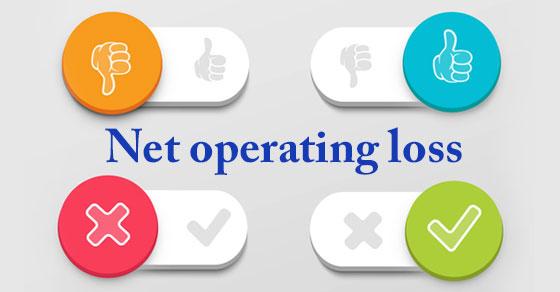The CARES Act liberalizes net operating losses

The Coronavirus Aid, Relief, and Economic Security (CARES) Act eliminates some of the tax-revenue-generating provisions included in a previous tax law. Here’s a look at how the rules for claiming certain tax losses have been modified to provide businesses with relief from the novel coronavirus (COVID-19) crisis.
NOL deductions
Basically, you may be able to benefit by carrying a net operating loss (NOL) into a different year — a year in which you have taxable income — and taking a deduction for it against that year’s income. The CARES Act includes favorable changes to the rules for deducting NOLs. First, it permanently eases the taxable income limitation on deductions.
Under an unfavorable provision included in the Tax Cuts and Jobs Act (TCJA), an NOL arising in a tax year beginning in 2018 and later and carried over to a later tax year couldn’t offset more than 80% of the taxable income for the carryover year (the later tax year), calculated before the NOL deduction. As explained below, under the TCJA, most NOLs arising in tax years ending after 2017 also couldn’t be carried back to earlier years and used to offset taxable income in those earlier years. These unfavorable changes to the NOL deduction rules were permanent — until now.
For tax years beginning before 2021, the CARES Act removes the TCJA taxable income limitation on deductions for prior-year NOLs carried over into those years. So NOL carryovers into tax years beginning before 2021 can be used to fully offset taxable income for those years.
For tax years beginning after 2020, the CARES Act allows NOL deductions equal to the sum of:
- 100% of NOL carryovers from pre-2018 tax years, plus
- The lesser of 100% of NOL carryovers from post-2017 tax years, or 80% of remaining taxable income (if any) after deducting NOL carryovers from pre-2018 tax years.
As you can see, this is a complex rule. But it’s more favorable than what the TCJA allowed and the change is permanent.
Carrybacks allowed for certain losses
Under another unfavorable TCJA provision, NOLs arising in tax years ending after 2017 generally couldn’t be carried back to earlier years and used to offset taxable income in those years. Instead, NOLs arising in tax years ending after 2017 could only be carried forward to later years. But they could be carried forward for an unlimited number of years. (There were exceptions to the general no-carryback rule for losses by farmers and property/casualty insurance companies).
Under the CARES Act, NOLs that arise in tax years beginning in 2018 through 2020 can be carried back for five years.
Important: If it’s beneficial, you can elect to waive the carryback privilege for an NOL and, instead, carry the NOL forward to future tax years. In addition, barring a further tax-law change, the no-carryback rule will come back for NOLs that arise in tax years beginning after 2020.
Past year opportunities
These favorable CARES Act changes may affect prior tax years for which you’ve already filed tax returns. To benefit from the changes, you may need to file an amended tax return. Contact us to learn more.
© 2020





